Table of Contents
ToggleWhat is Pronoun?
A pronoun is a word that takes the place of a noun. Instead of repeating the same noun over and over again, we can use a pronoun to refer back to it.
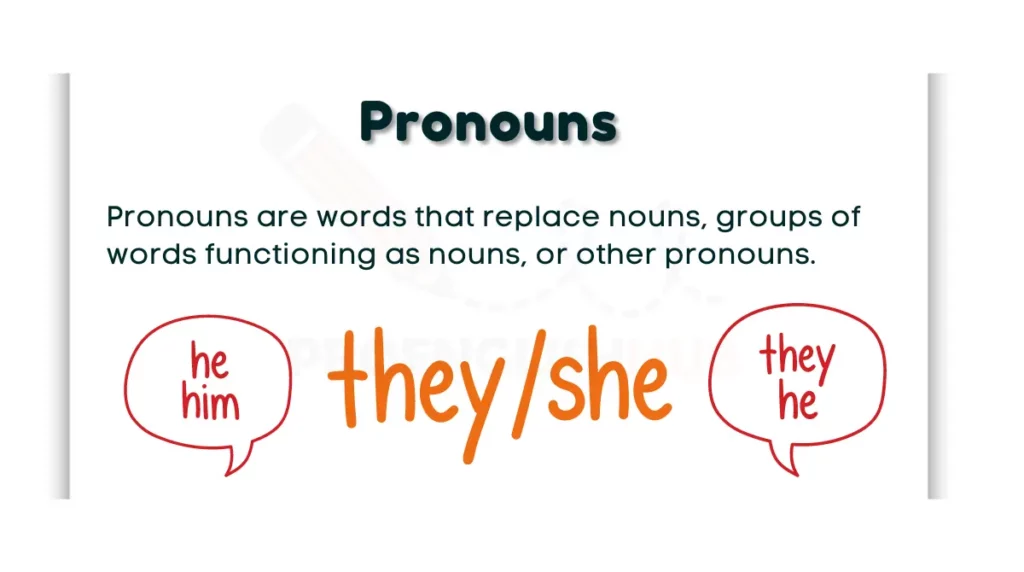
Types of Pronoun
Here are 10 main Types of Pronoun:
1. Relative Pronouns
Relative pronouns are used to introduce relative clauses in a sentence. They connect a dependent clause to a main clause and often refer to a noun that comes before them.
Examples
- The person who called is my friend.
- This is the book that I was looking for.
Usage in Sentences
- The cat that I adopted from the shelter is very playful.
- The car, which belongs to my neighbor, is parked in front of my house.
- She has a friend who speaks three languages.
2. Reflexive Pronouns
Reflexive pronouns are used when the subject and object of a sentence are the same. They end in self or selves.
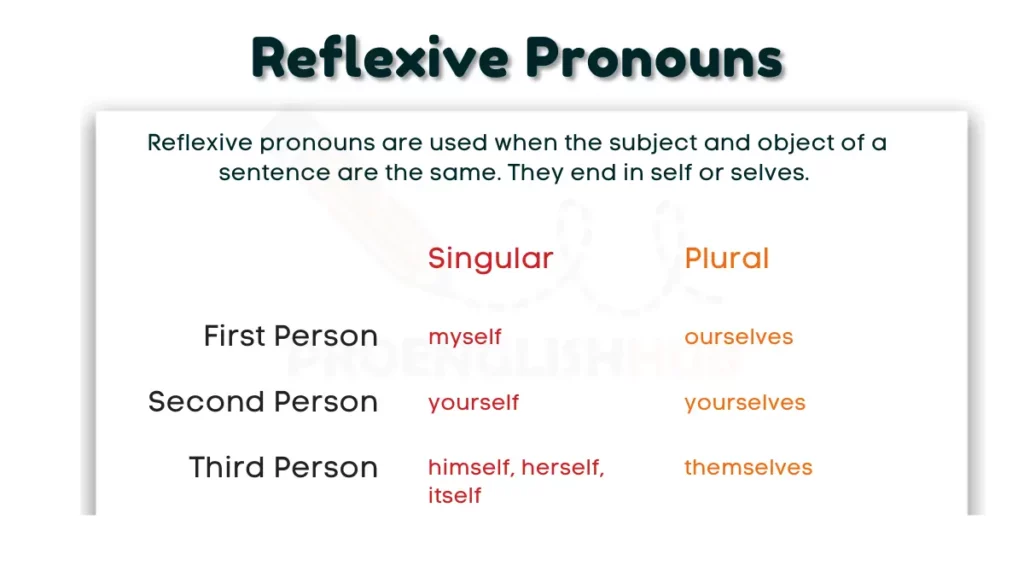
Examples
- I hurt myself while cooking.
- They enjoyed themselves at the party.
Usage in Sentences
- She taught herself how to play the guitar.
- We should take care of ourselves before helping others.
- The children dressed themselves for the school play.
3. Object Pronouns
Object pronouns replace the object in a sentence and are used to avoid repetition.
Examples
- Give the book to me.
- She invited him to the party.
Usage in Sentences
- Can you pass the salt to her?
- I saw them at the park yesterday.
- The teacher praised us for our hard work.
4. Personal Pronouns / Subject Pronouns
Personal pronouns are used to replace the subject in a sentence. They vary based on person and number.
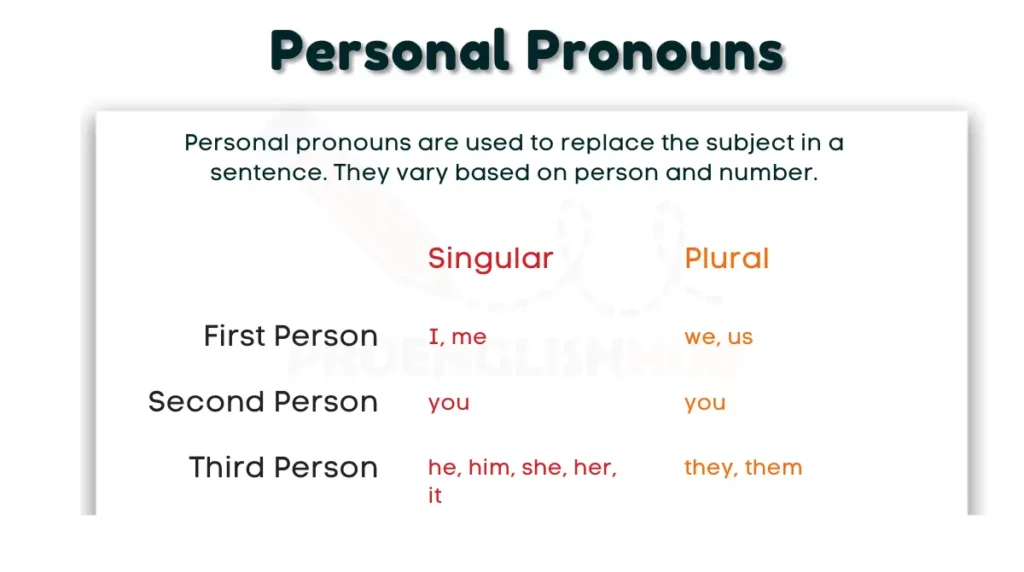
Examples
- I love reading books.
- They are going to the movies.
Usage in Sentences
- He is my best friend.
- We will meet at the coffee shop.
- She loves to sing in the shower.
5. Reciprocal Pronouns
Reciprocal pronouns are used when two or more people are involved in an action, expressing mutual action or relationship.
Examples
- They hugged each other.
- We help one another.
Usage in Sentences
- The twins always support each other in their endeavors.
- We should learn to listen to one another.
- The team members trust themselves to perform well.
6. Possessive Pronoun
Possessive pronouns indicate ownership or possession. They do not need an accompanying noun.
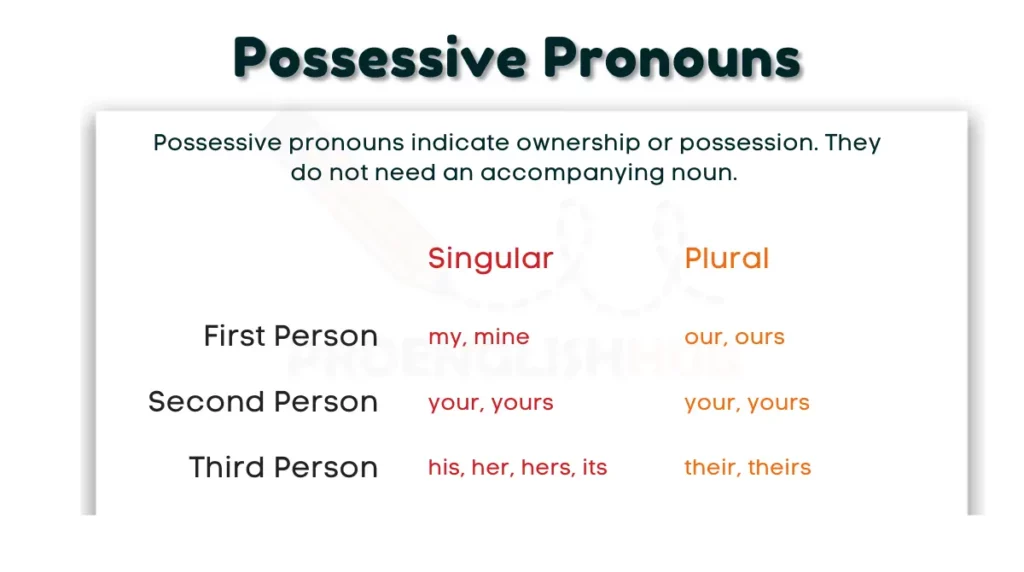
Examples
- This is mine.
- The laptop is hers.
Usage in Sentences
- The blue notebook is yours, not mine.
- Is this pen his or yours?
- The keys to the house are theirs.
7. Demonstrative Pronouns
Demonstrative pronouns point to specific things or people. The most common ones are “this,” “that,” “these,” and “those.”
Examples
- I prefer this over that.
- Are these your shoes?
Usage in Sentences
- That is the restaurant where we had dinner last night.
- These are the pictures I was talking about.
- I want to buy this shirt.
8. Interrogative Pronouns
Interrogative pronouns are used to ask questions. The main ones are “who,” “whom,” “what,” “which,” and “whose.”
Examples
- Who is coming to the party?
- What do you want for dinner?
Usage in Sentences
- Whose book is this on the table?
- Which color do you prefer?
- What is the purpose of this meeting?
9. Indefinite Pronouns
Indefinite pronouns refer to nonspecific people or things. Common examples include “everyone,” “someone,” “something,” and “none.”
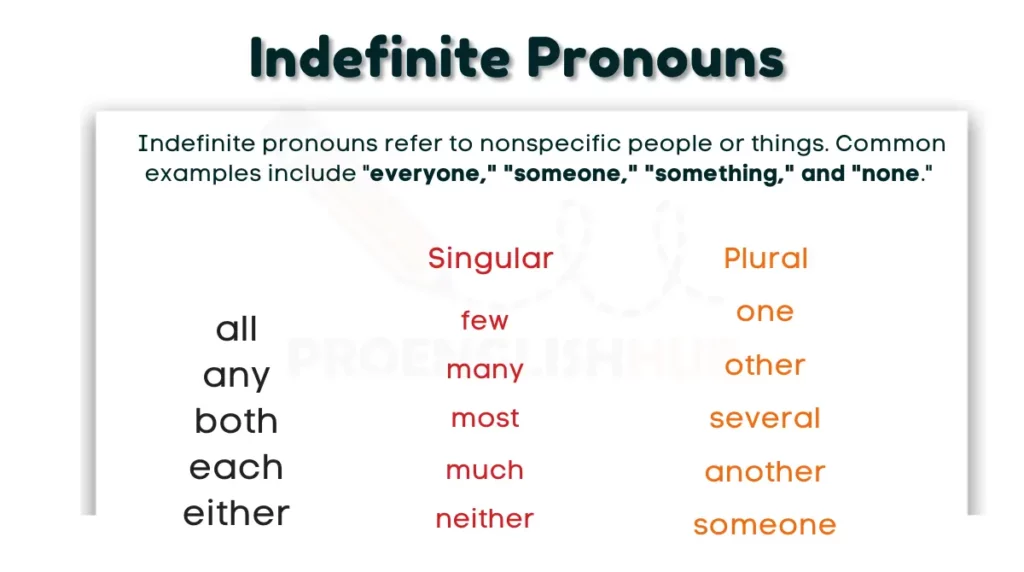
Examples
- Everyone enjoyed the movie.
- Nobody knows the answer.
Usage in Sentences
- Somebody left their umbrella in the hallway.
- Everything is ready for the party.
- None of the students completed the assignment.
10. Intensive Pronouns
Intensive pronouns make a noun stand out. They are identical in form to reflexive pronouns.
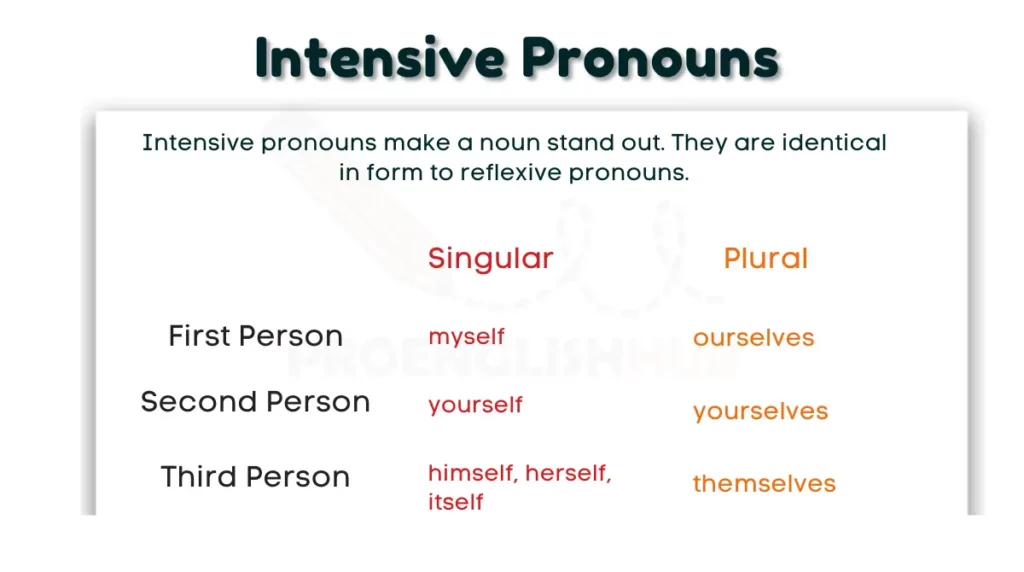
Examples
- I myself will take care of it.
- She did the homework herself.
Usage in Sentences
- I built this birdhouse all by myself.
- The chef prepared the entire meal himself.
- They decorated the room themselves for the party.
Examples of Pronoun
Here are a few examples of different pronouns:
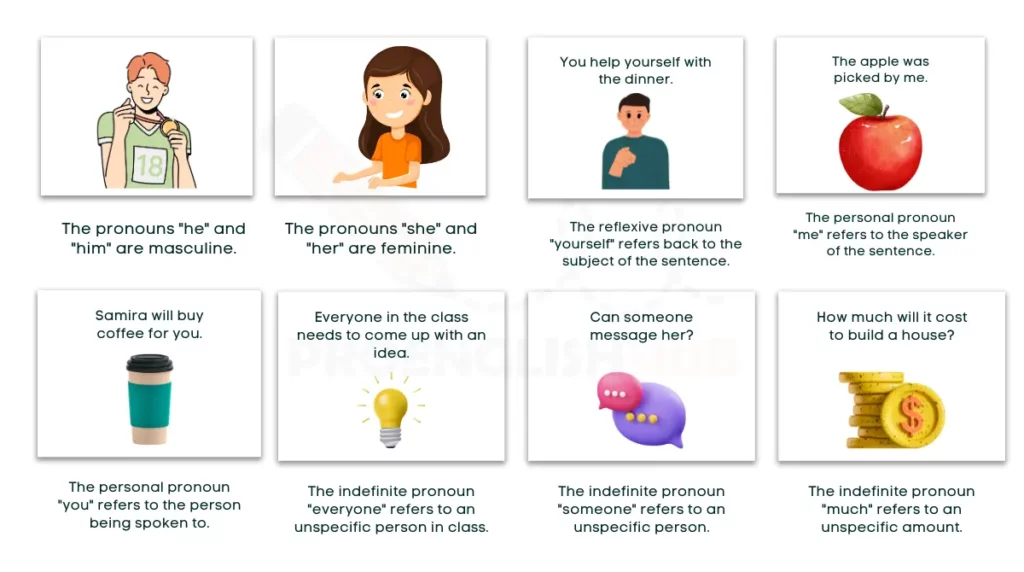
- I love reading. (I)
- She fixed the bike herself. (She, herself)
- They invited us. (They, us)
- The cat is yours. (Yours)
- This is my favorite song. (This)
- Who is coming to the party? (Who)
- Everyone enjoyed the movie. (Everyone)
- I did it myself. (I, myself)
- They hugged each other. (They, each other)
- The book I’m reading is interesting. (The book, I’m)
- He saw me at the park. (He, me)
- Those shoes are hers. (Those, hers)
- Give me that. (Me, that)
- Is this your pen? (This, your)
- Who knows? (Who)


